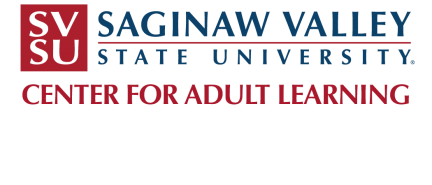
- Description
- Objectives
- Outline
- Materials
- System Requirements
How many children open their closet doors expecting to find Narnia, or the beasts from Maurice Sendak’s Where the Wild Things Are? This course explores a variety of books for children and young adults to identify the cornerstone of the classics—good story telling. This course illustrates for aspiring authors what it takes to write, edit, and publish your books for children.
After completing this course, you should be able to:
- Define what makes a good children’s book
- Recognize trends in the publishing industry
- Recall strategies for locating book ideas
- Identify components of children’s books
- Recall strategies for getting your book published
Writing Books for Children Module 1
Children’s Books and Their Authors
Module one explores a brief history of children’s books introducing you to the different types of children’s books found today and through the ages. An examination of successful children’s books focuses on the fundamental aspects of good story telling for children. This module also provides tips for getting started as a children’s book author.
- A Brief History of Children’s Books
- The Different Classifications of Children’s Books
- What Makes a Good Children’s Book?
- Become an Expert in Children’s Literature
- Write Now and Write Often
- How to Locate Book Ideas
Writing Books for Children Module 2
Types of Children’s Books
From picture books to chapter books to plays and poetry, children’s books comprise a variety of models. Module two illustrates the components and styles within each different type of book for children and young adults. This module also examines the market for publishing each type.
- Picture Books
- Early Readers
- Chapter Books
- The Basic Parts of Fiction Writing
- Writing for a Children’s Series
- Writing Plays and Poetry for Children and Young Adults
Writing Books for Children Module 3
Types of Marketing
Module three takes you through the different categories of nonfiction writing and includes strategies for targeting your audience. Differences between nonfiction and fictionalized nonfiction are discussed and include guidelines for researching facts. Additionally, this module highlights important aspects of editing and proofreading your manuscript.
- The Parts of Nonfiction
- Research
- Fictionalizing Nonfiction
- Editing Fiction
- Editing Nonfiction
- Proofreading
Writing Books for Children Module 4
Managing Your Finances and Final Steps
Module four focuses on the proper protocol for submitting your manuscript to potential publishers, including how to write queries, proposals and cover letters. Also covered is what to consider when deciding whether or not to find an agent or do the work yourself. This module highlights the importance of following developments in the field of children’s book publishing and how to stay connected to the trends. The definition of subsidiary rights and important considerations regarding them are provided. Finally, this module provides tips for promoting and marketing your book including suggestions for self-publishing your own book.
- Queries and Proposals
- Submitting Your Manuscript
- Working with the Market: Current Children’s Book Trends
- Working with Your Editor
- Promoting and Marketing Your Book
- Subsidiary Rights
- Self-Publication and Vanity Publications
Ed4Career is committed to being both environmentally conscious and making it easier for you to study! We’re making your education mobile! All of our textbooks are now provided as eTextbooks. You can access them on your laptop, tablet, or mobile device and can study anytime, anywhere.
The move away from physical books to eTextbooks means you get the latest, most up-to-date version available. This also makes your training more accessible, so you can study anywhere you have your phone or tablet. The best part is that all materials are included in your training cost so there are NO extra fees for books!
Internet Connection
- Broadband or High-Speed - DSL, Cable, and Wireless Connections
*Dial-Up internet connections will result in a diminished online experience. Classroom pages may load slowly and viewing large audio and video files may not be possible.
Hardware Requirements
- Processor - 2GHz Processor or Higher
- Memory - 1 GB RAM Minimum Recommended
PC Software Requirements
- Operating Systems - Windows 7 or higher
- Microsoft Office 2013 or higher. Also, you could use a general Word Processing application to save and open Microsoft Office formats (.doc, .docx, .xls, .xlsx, .ppt, .pptx)
- Internet Browsers - Google Chrome is highly recommended
- Cookies MUST be enabled
- Pop-ups MUST be allowed (Pop-up Blocker disabled)
- The Kindle Reader App or VitalSource Bookshelf App are needed for many of our courses (No special equipment needed. This can be downloaded for FREE onto your computer.)
- PowerPoint Viewer (if you do not have PowerPoint)
- Adobe PDF Reader
- QuickTime, Windows Media Player &/or Real Player
MAC Software Requirements
- Operating Systems - Mac OS x 10 or higher with Windows
- Mac office programs or a Word Processing application to save and open Microsoft Office formats (.doc, .docx, .xls, .xlsx, .ppt, .pptx)
- Internet Browsers- Google Chrome is highly recommended
- Cookies MUST be enabled
- Pop-ups MUST be allowed (Pop-up Blocker disabled)
- The Kindle Reader App or VitalSource Bookshelf App are needed for many of our courses (No special equipment needed. This can be downloaded for FREE onto your computer.)
- PowerPoint Viewer (if you do not have PowerPoint)
- Adobe PDF Reader
- Apple QuickTime Media Player
